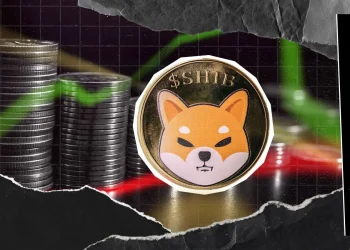But hold on…maybe this time is different? Maybe there are other factors that weren’t there in the past that are changing the trend?
One of these differences is that we’ve got crypto ETFs now. Sexy.
Bitcoin ETFs have greatly outperformed Ethereum ETFs since their inception (Spot BTC ETF came online in January of 2024, and the ETH ETF in July 2024).
Why is that?
I’d say that there are three main reasons:
Bitcoins’ narrative is both clearer and more clearly aligns with current global geopolitical and economic trends. I’ll discuss this more below, but BTC is digital gold and is generally considered a risk-off asset, while ETH is risk-on.
Simply put, when your aunt asks you about crypto, they usually say Bitcoin, not Ethereum, and certainly not Peanut the Squirrel. The day we have a PNUT ETF is the day I retire from crypto.
Furthermore, I imagine that ETH still remains largely a mystery to institutional investors. Ethereum’s broader utility in DeFi, NFTs, and smart contracts is harder to explain to traditional investors. Ultimately, ETH is aiming to be digital money on top of a digital, decentralized financial system. That’s a harder pitch than digital gold, and there are a lot more pieces that have to be in place to make it happen.
Bitcoin does have more regulatory clarity because Ethereum is a more complicated product. The big issue here is that without regulatory clarity, ETH ETFs can’t benefit from ETH’s native staking. That’s a huge advantage that ETH offers and a huge part of its long term value that’s simply not being reflected in its ETF.
However, I fully expect this to be temporary. An ETH ETF with native staking is coming.
With a lot of BTC being purchased by these ETFs, the price was pushed up pretty dramatically. As crypto short sellers (those betting against BTC) face liquidation, they’re forced to buy more BTC to cover their position, further pushing the price up.
Obviously, if ETH started to rally, we’d see a similar situation.
The tides do seem to be shifting. Positive total inflows for the ETH ETF reached 241 million (as of four days ago). You can see this reflected in the chart below. But obviously, there’s still substantially more interest in the BTC ETF than the ETH one.
The crux of the evidence here is that BTC is more appealing to institutional investors.
However, despite the fact that the BTC ETF is outperforming the ETH ETF, I think that BTC and ETH will behave similarly to their historical pattern, ETF or no ETF.
The factors making the BTC ETF more attractive are the same factors that made BTC more attractive in the past and caused it to lead the bull run (i.e., name recognition, regulatory clarity, easier to understand). It’s just that the market potential is much larger as the doors are open to institutional investors.
Also, the ETH ETF has begun to do better as of the last week. So, my thesis might be correct quite soon.
Leading the Bull Run charge…see what I did there?
So here’s the thing that I actually think is different: the macro market conditions and how suitable they are for a monumental Bitcoin run.
Here’s the thing. Bitcoin’s timing is almost too good to be true. It’s almost so perfect that it either makes me believe in a conspiracy theory or in God.
How is it that we have an inflation-proof, digital, fungible asset that just surpassed the market cap of silver, while MMT economic policies are threatening the West with unprecedented inflation and challenging the dollar as the global reserve asset?
Add in the results of years of international policies of appeasement and the rise of the China, Russia, Iran, and North Korea block, and you have a strong case for why the dollar won’t continue to be the main thing on central bank reserve asset sheets.
I think people are catching on. The real explosion will be when/if enough countries recognize that enough other countries are adding BTC to their balance sheets and don’t want to be left out. That’s where things get very, very interesting.
I don’t think we’re there yet. Only 7 countries have BTC, and other than Bhutan and El Salvador, most of those acquisitions came through legal seizures. But maybe countries are buying and keeping it anonymous? I mean, I would if I were them. But assuming we’re not there yet, if this narrative catches on, this is how BTC could really outpace ETH.
And companies are certainly catching on:
But, even if we don’t see a massive run on Bitcoin driven by central banks and companies, Bitcoin is better situated for the global economic situation than Ethereum.
Bitcoin’s narrative as a hedge against inflation positions it well during periods of tightening monetary policy, as it is increasingly seen as a “risk-off” asset, similar to gold. Ethereum, by contrast, functions more as a “risk-on” asset due to its reliance on speculative activity within its ecosystem.
This is critical.
This narrative I presented above is the main reason that I have chosen to keep about half of my crypto investments in BTC (although I know many more who choose to be all in on Bitcoin for these reasons).
Ultimately, the narrative of Bitcoin as digital gold and as a reserve asset is gaining steam.















